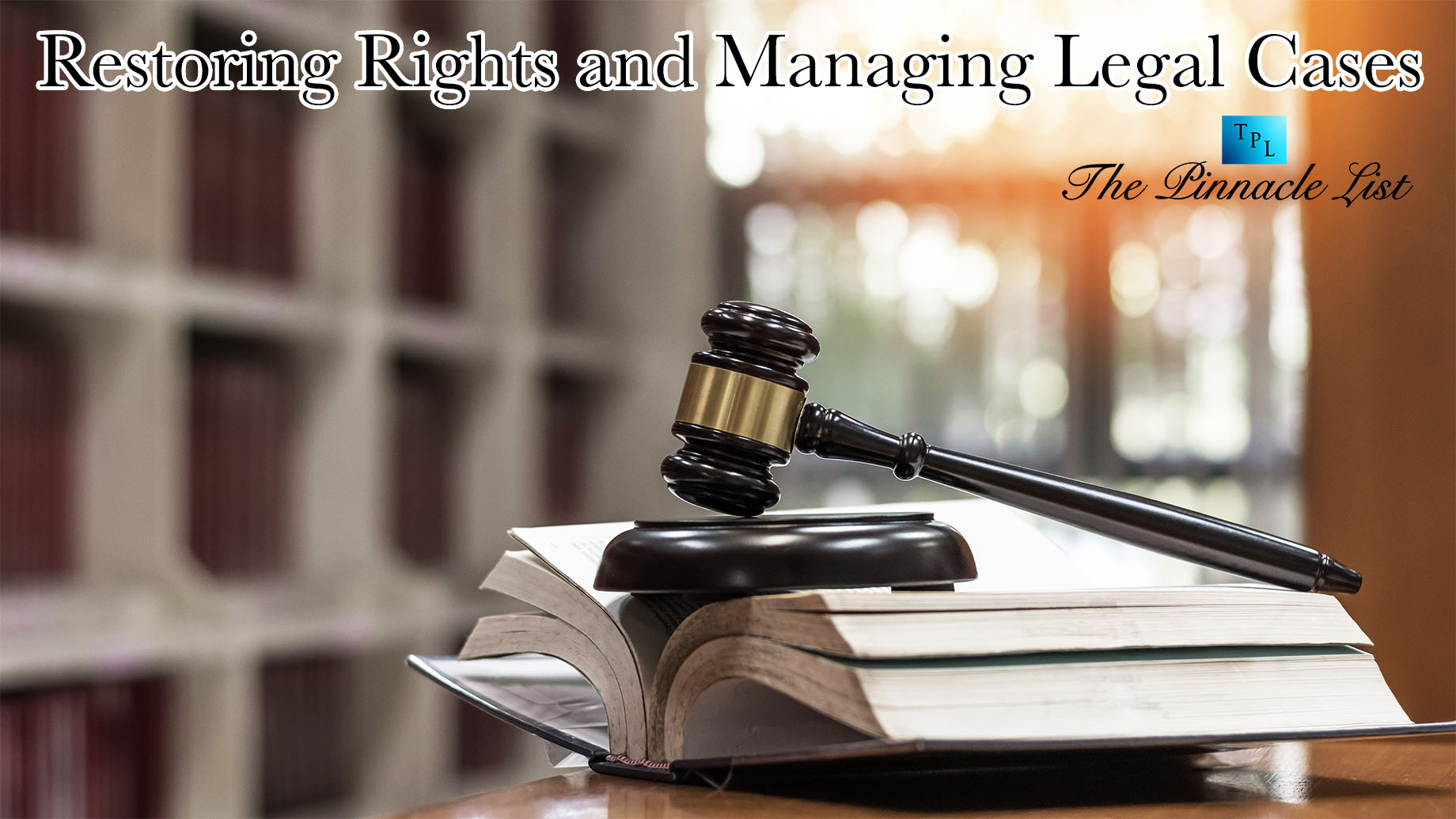
When you face legal challenges, it can be overwhelming. Many people do not know where to start when it comes to managing legal cases or restoring their rights. Whether you are working to clear your name or rebuild your life after legal issues, understanding your rights and the legal processes is very important.
One of the first steps is to check if your rights have been restored after a legal issue. Many people wonder, How To Check If My Gun Rights Have Been Restored? This process can depend on the laws in your state and the details of your case. Let’s discuss this and other important aspects of managing legal cases in a simple and clear way.
What Are Your Rights After a Legal Case?
After dealing with a legal case, certain rights may be affected. For example, some legal situations can impact your ability to vote, own firearms, or even hold certain jobs. Restoring your rights is an important part of moving forward. Here are some key rights that may need to be addressed:
- Voting Rights: In some cases, people lose the right to vote temporarily. This depends on the severity of the offense and your state laws. Once your legal obligations, like probation or parole, are complete, you can often apply to restore your voting rights.
- Firearm Rights: Gun rights may be restricted after certain legal cases, such as felony convictions or domestic violence charges. The process for restoring these rights involves checking with your state’s requirements and following specific steps.
- Employment Opportunities: Some jobs require a clean criminal record. Clearing your record or expunging charges can help you regain access to these opportunities.
How to Begin Restoring Your Rights
Restoring your rights can seem complex, but there are steps you can take to make it easier. For example, if you are wondering How To Check If My Gun Rights Have Been Restored? you can start by looking at your state laws. Here are some general steps:
- Understand Your Case: Know what your charges were and the penalties you faced. This will help you determine which rights were affected.
- Complete Legal Obligations: Before applying for rights restoration, ensure all fines, probation, or parole requirements are completed.
- Check Your State’s Rules: Each state has its own process for restoring rights. You may need to contact a local legal office, check online resources, or consult with a lawyer.
- Submit an Application: In many cases, restoring rights involves filling out an application. This might include paperwork to expunge records or petitions to restore specific rights.
Understanding Legal Timelines
Managing legal cases also involves understanding timelines. One important factor is how long law enforcement or prosecutors have to act in your case. These timelines are called statutes of limitations. They set the deadline for filing charges and protect individuals from facing old or forgotten accusations.
- What Are Statutes of Limitations? Statutes of limitations are laws that limit how long someone can be charged after a crime. For example, minor offenses might have a statute of limitations of one or two years, while serious crimes might have much longer deadlines.
- Why Timelines Matter: If law enforcement misses the filing deadline, they may lose the ability to prosecute the case. However, some serious crimes, like drug trafficking, might not have a statute of limitations. Consulting with process servers near Queens, NY, can ensure your legal documents are served accurately and within the required timeframe. Timely and professional service of process can be critical in preserving legal rights and advancing your case efficiently.
- When Does the Clock Start? The timeline usually starts when the crime is committed. In some cases, it begins when the crime is discovered by law enforcement.
Steps to Manage Legal Cases
If you are involved in a legal case, staying organized and informed is crucial. Here are some simple steps to help you manage your case:
- Gather Documents: Keep copies of all legal documents, including court papers, police reports, and communication with attorneys. These will help you track the progress of your case.
- Hire a Lawyer: A lawyer can guide you through the legal process, protect your rights, and explain the next steps in your case.
- Follow Deadlines: Pay attention to court dates and filing deadlines. Missing these can delay or harm your case.
- Ask Questions: Do not hesitate to ask your lawyer about your rights, deadlines, or the steps involved in your case.
Common Questions About Legal Cases
People often have many questions when dealing with legal issues. Here are some examples:
- Can I restore my rights if I move to another state? The rules may vary by state. It is best to check with local authorities or a lawyer.
- What happens if the police take too long to file charges? If the statute of limitations expires, the case might be dismissed. This is why understanding deadlines is important.
- Can I manage the process on my own? While you can take some steps independently, legal guidance is often helpful for ensuring the process is done correctly.
Conclusion
Restoring your rights and managing legal cases can be a challenging process, but it is possible with the right steps and information. Whether you are working to reclaim your firearm rights or handling unresolved legal issues, staying informed is key. If you are wondering, How Long Do Police Have To File Drug Charges, it depends on the type of case and your state’s statutes of limitations. Knowing this information can help you protect yourself and move forward.
Take the time to understand your rights, meet all legal obligations, and seek help from professionals when needed. With careful planning, you can work toward restoring your rights and putting legal challenges behind you.